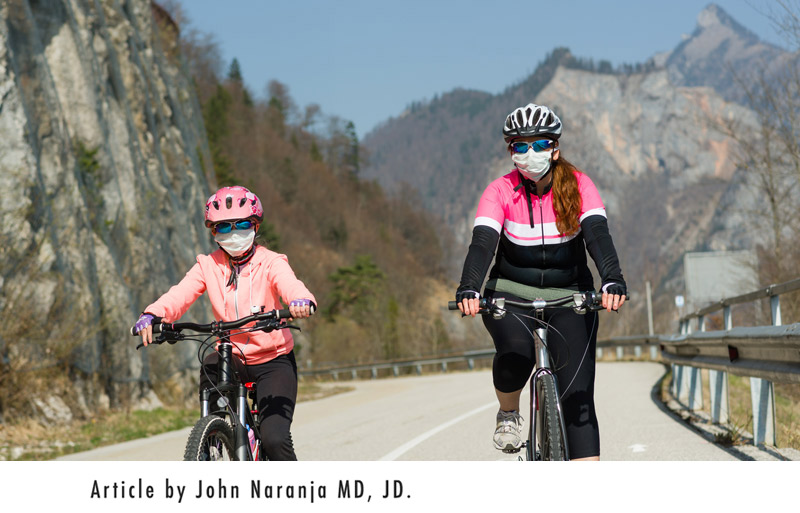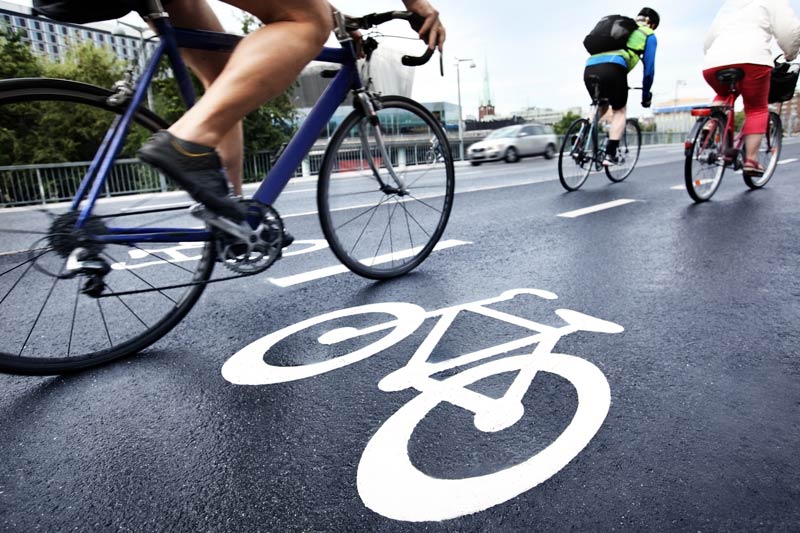
In the context of COVID-19 and the shut down of gyms and fitness centers, many individuals are finding different ways to keep fit and pursue recreational activities. One area that has been impacted is the demand for bicycles. Sales of bicycles for both children and adults have experienced double- and triple-digit increases in sales. The ability to pursue both outdoor and kid-friendly activities remains a major attraction for bicycle buyers.
But as the rise in bicycle usage gathers momentum, the importance of bicycle safety becomes heightened. The purpose of this blog is to discuss the principles of bicycle safety. This includes:
- Familiarity with the Rules of the Road
- Proper bicycle selection and maintenance
- Use of approved bicycle helmets
- Understanding risk factors associated with bicycle crashes
The absence of external bicycle protection while riding results in a predictable vulnerability of the cyclist to injury from either an unintentional fall or collision with a motor vehicle. In 2018 alone, there were 857 bicyclists killed in traffic crashes. By law, bicyclists have the same rights and responsibilities as motorized vehicles. This compels familiarity with the Rules of the Road to help prevent accidents.

Another way to prevent injury is to use a properly fitted and maintained bicycle. Proper fit and maintenance allow the rider to concentrate on the road and his/her surroundings. It also incidentally prevents injury related to the repetitive motions required in cycling.

With regard to helmets, sixty-percent of bicycle deaths occurred in riders who were not wearing helmets. The data strongly supports the use of helmets to protect the brain. Specifically, helmet use may reduce the risk of head injury by 50%, and head, face or neck injury by 33%. Notably, emergency room doctors are among the strongest advocates for bicycle helmet use. As the fit is important to ensure the benefits of protection with a helmet, refer to the National Highway Traffic and Safety Administration website for taking the proper helmet fitting step.

Risk factors associated with bicycle crashes include riding between 6 p.m. to 9 p.m.; urban riding; male sex; and ingestions of alcohol. Knowledge of these facts can help one ride responsibly. Wear and use equipment that can make you more visible – bright clothing and the use of lights and reflectors are a good start.

Plan your route to avoid heavily traveled areas. Understand that the ingestion of alcohol can affect one’s judgment and reaction times. Cycling remains a healthy alternative in the setting of the current COVID-19 requirements to maintain physical distancing and avoid the risks of large crowds. Continuing an exercise routine and getting outdoors also may strengthen our immune system and improve our overall mental health. With that in mind, the responsible approach to launching a beneficial cycling program is to integrate the safety principles described.
Look for a more detailed discussion of safety tips and informational tidbits in upcoming blogs.
Dr. John, Esq. is both an attorney and a physician. Before obtaining his law degree, Dr. John Naranja practiced for approximately 12 years as an orthopedic surgeon.
